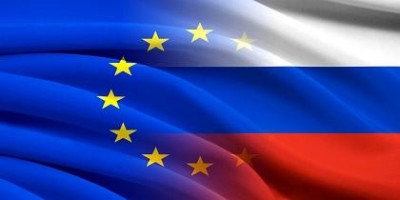EU Shoots Itself in the Foot by Prolonging Sanctions on Russia. Will Trump Normalize Relations with Moscow?

On December 15, the European Union extended by six months its main economic sanctions on Russia over the conflict in Ukraine.
The decision, to large extent spurred on by US President-elect Donald Trump’s stated willingness to normalize the relations with Moscow, came despite growing pressure among investors and energy interests in Europe, including within Germany itself, for the sanctions to be rolled back.
Several EU members had objected to the extension of the restrictive measures but voted «yes» to demonstrate «unity». A demand by Poland that the sanctions be extended for 12 months to signal EU condemnation of Russian policy in Syria was rejected. The idea was believed to be wrong by European Commission President Jean-Claude Juncker. It had been also dismissed by EU foreign affairs chief Federica Mogherini.

Europe’s internal problems, the ineffectiveness of the measures and the expected shift in the US policy on Russia will probably make the EU lift the sanctions in the summer of 2017.
Many countries oppose the «trade war» and the discontent is growing. Imposed almost three years ago, the restrictive measures have failed to achieve any results. «Whoever believes that additional sanctions against Russia can lead to resolution of the drama in Syria, it is highly naive», said President Juncker in an interview with the German TV channel ZDF.
There are signs the new US administration may lead the process and lift the sanctions before the EU does. Jack Kingston, a Donald Trump supporter and former congressman, visited Russia last week with a team of American business leaders. He suggested publicly that Western sanctions on Russia could be lifted.
«Trump can look at sanctions. They’ve been in place long enough», Kingston said during an interview with NPR in Moscow. «Has the desired result been reached? He doesn’t have to abide by the Obama foreign policy. That gives him a fresh start».
Incoming White House chief of staff Reince Priebus, who was named last month by Trump to be his White House chief of staff, also said the United States might not keep the restrictive measures against Russia in place under the new president.
The sanctions against certain individuals and businesses tied to Russian President Putin were done by executive order. The next president can easily undo them. During the presidential race, the president-elect said he would consider recognizing Crimea as Russian territory and lifting the sanctions against Moscow.
The US State Department has already softened the sanctions against Russia’s state arms exporter in order to buy new military reconnaissance equipment – the OSDCAM4060 sensors used for aerial surveillance and aerial photography. This information appeared on the Federal Register website on December 14. It is not only Mr. Trump’s plans to improve the relations with Russia. The US badly needs Russian technology for its space research program, in particular RD-181 rocket engines. The deal went through while the US exerted pressure on the EU to keep the anti-Russia sanctions in place. Washington has always had a straightforward down-to-earth approach to a problem.
It all makes believe the sanctions were extended for one last time. Moscow has no magic wand to resolve the conflict in Donbass in one fell swoop. It takes two to tango and this is the time when Ukraine is coming under more pressure regarding its refusal to comply with its international obligations. For instance, during the EU summit French President Francois Hollande publicly criticized Kiev admitting that it is Ukraine’s government who is holding up the crisis management process. «The Ukrainian government should, also, for its part, fulfil its obligations under the Minsk Accords», he said.
Anyway, this policy has little impact on Russia. President Vladimir Putin has said manty times that Russia’s economy can rebound stronger from Western sanctions. Speaking at the November economic forum of the All-Russian Popular Front group the president promised to retain a ban on Western food products for «as long as possible» in a bid to help Russian businesses.
It has been estimated that the cost to European farmers of the sanctions against Moscow is equal to 5.5 billion euros a year. Russia is on the way to achieve food autonomy. If it does, the EU agricultural sector will be badly hurt. According to the Austrian Institute of Economic Research (WIFO), the macroeconomic effects of the trade loss, amounting to €34 billion in value added in the short run and €92 billion in the longer. Keeping farmers in business, on a drip of multi-million euro rescue packages is not a sustainable solution.
The issue of the sanctions lifted or not, does not top Russia’s agenda. It’s not acute anymore. Actually, the sanctions have already been openly breached by the United States to end all the talk about the West’s unity. By prolonging the restrictive measures against Moscow, Brussels shot itself in the foot. The only one to suffer the damage is the EU itself.

